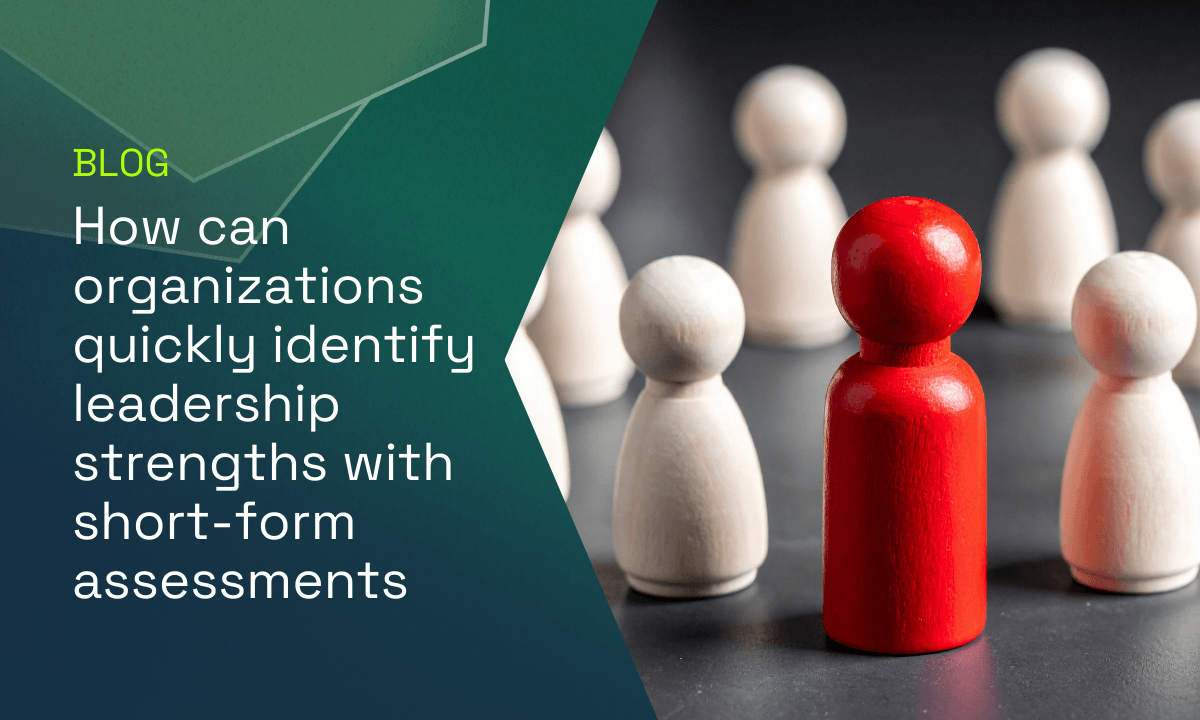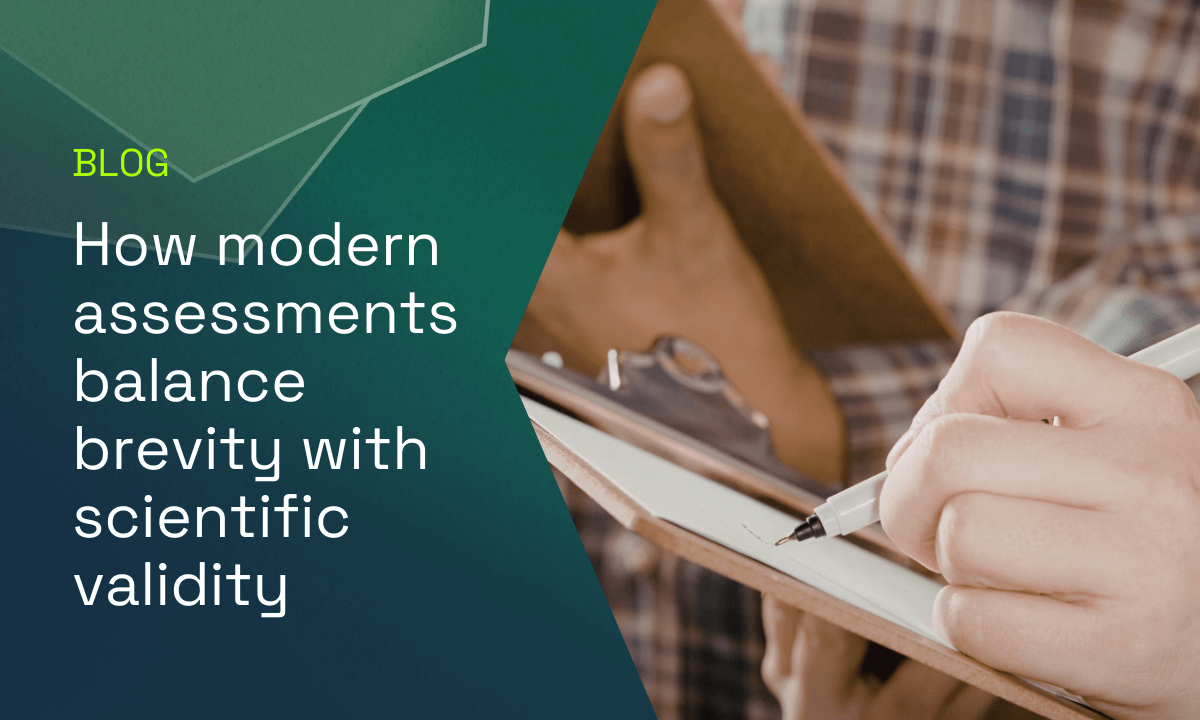How to use assessments in your talent management strategy
Assessments in talent management are not just tools; they are strategic assets that can profoundly reshape how organizations understand, develop, and leverage their human capital. 60% of companies say identifying and developing high-potential employees is one of their biggest challenges. The judicious use of assessments can transform the landscape of talent management from a guessing game into a precise, data-driven science.
Learn how to Enhance Talent Management with Assessments
1. Use Assessments to Identify High-Potential Employees
Identifying high-potential employees is crucial for ensuring the long-term viability and leadership pipeline of any organization. Traditionally, this process might have relied heavily on subjective judgments and seniority. However, by integrating personality assessments, companies can move toward a more objective and equitable model.
Insider Tip: When selecting assessments for high-potential identification, consider a blend of personality, cognitive, and scenario-based assessments. This mix provides a holistic view of an employee's potential.
2. Use Assessments to Identify the Best Candidates for a Role
Recruitment is more than filling a vacancy; it's about finding the right fit. Assessments can provide insights into a candidate's skills, personality, and potential to increase the likelihood they are the right person for the job.
The introduction of skill-based assessments and behavioral interviews can increase new hire performance because these assessments help clarify which candidates have the innate skills to be successful at certain job tasks day one and also where to focus their development efforts.
Read more about the benefits of assessment-driven recruitment here.
3. Use Assessments to Identify the Best Candidates for a Promotion
Promotions are pivotal moments in an employee's career and crucial decisions for an organization’s growth. Using assessments can help ensure that promotions are awarded based on merit and compatibility with the new role's demands, not just charisma or confidence.
Too often, companies promote based on tenure rather than suitability or leadership potential. Implementing leadership potential assessments can change that by aligning promotions with strategic needs and individual capabilities.
Insider Tip:Combine assessment results with past performance data when making promotion decisions. This integrated approach reduces bias and increases decision accuracy.
4. Use Assessments to Identify the Best Candidates for a Development Opportunity
The U.S. alone spends $166 billion a year on leadership development, part of a $366 billion global market. Leadership development isn't just beneficial; it's essential for adapting to changing market conditions and technologies. Assessments can pinpoint exactly what kind of development each employee needs, making the investment in training more effective.
Insider Tip: Skill gap assessments should be routinely conducted—not just once. Regular assessments help track development progress and evolving needs.
5. Use Assessments to Identify the Best Candidates for a Team
The success of projects often hinges on the team dynamic. Assessments can provide invaluable insights into how potential team members might interact, communicate, collaborate, and handle conflict.
Expert Opinion: Look for assessments that offer insights into conflict resolution, communication preferences, and stress management to build balanced teams.

How to Use Assessments in Your Talent Management Strategy
Beyond understanding the specific applications of assessments, it's crucial to integrate these tools thoughtfully and ethically into your talent management strategy. Here is some guidance:
- Ensure Alignment with Business Goals: Every assessment should clearly align with broader business objectives, whether it’s improving retention, enhancing performance, or driving innovation. Personality assessments like the Deeper Signals Core Drivers Assessment help identify individual and team strengths and risks which can help organizations excel at their talent management strategies.
- Maintain Transparency with Stakeholders: Be transparent with your employees about how assessments are used and how they contribute to their personal and professional development.
- Uphold Ethical Standards: Choose assessments that are scientifically validated and ensure they are administered fairly to avoid any bias or discrimination.
- Continuously Evaluate and Adapt: Regularly review the effectiveness of your assessment tools and make adjustments based on feedback and changing business needs.
- Train Your Teams: Ensure that everyone involved in administering and interpreting assessments is properly trained. This will help maintain the integrity and effectiveness of the assessment process. With the help of Team Dynamics Reports by Deeper Signals, you will be one step ahead in understanding the needs and working styles of your team members to train them better.
Conclusion
Incorporating assessments into your talent management strategy isn’t just a procedural enhancement; it can be transformational in how you engage with and develop your workforce. Guided by a careful, ethical, strategic approach, assessments can unlock potential across all levels of your organization, fostering a more dynamic, skilled, and committed workforce. As we continue to navigate the complexities of the modern workplace, let assessments be your compass, leading you to make more informed, impactful decisions.




























